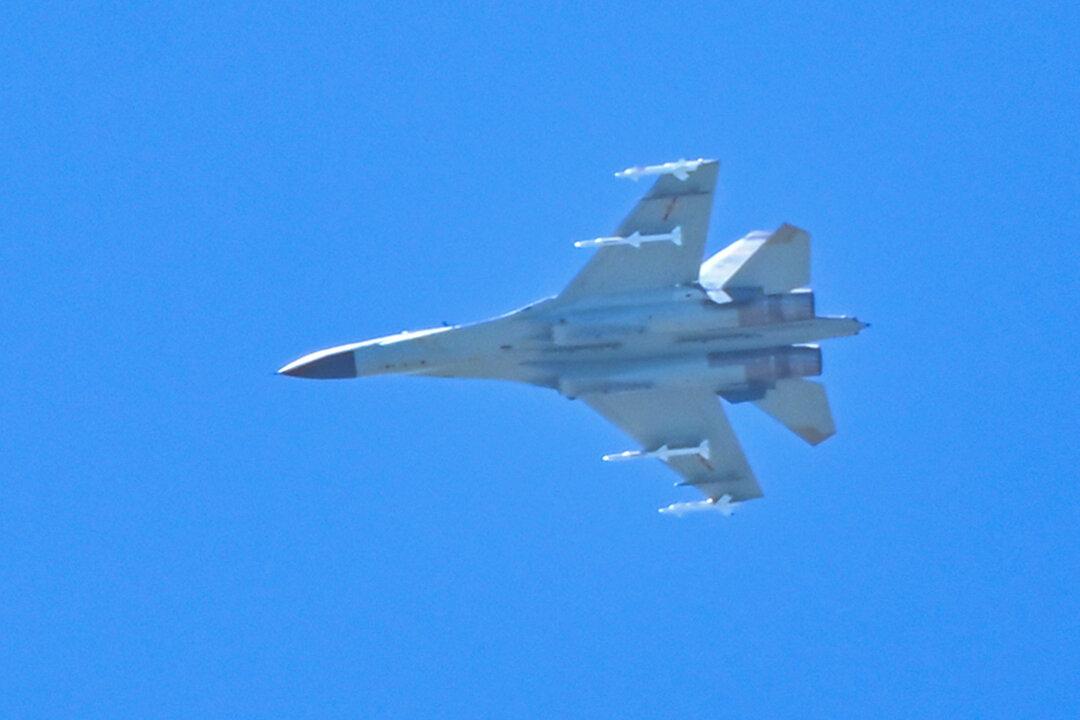TAIPEI, Taiwan—China’s military sent 103 warplanes toward Taiwan in a 24-hour period in what the island’s defense ministry said Monday was a daily record in recent times.
The planes were detected between 6 a.m. on Sunday and 6 a.m. on Monday, the ministry said, adding that 40 of the planes crossed the symbolic halfway point between mainland China and the island. The planes turned around before reaching Taiwan.





